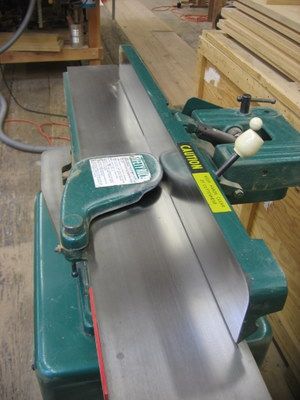
My last post about the right tool for the job was meant as a brief insert, a wedge, a pressure point into the discussion of tools and tooling and what’s best for you in your shop and what’s right for me in mine. It’s a fascination to me that we can do so much with so little. And some days so little with so much.
My Jointer
I remember being a young woodworker and for instance being completely flummoxed by my jointer. How did this chunk of cantankerous cast iron really work? Why did it perform well some days and on others was my sworn enemy, my rival, the fixed point of my struggle, the pole star of my frustration? It could not joint a square and flat edge to save its thin life. Melted into something useful like a tractor seat, I might regain my respect for this metal. But as a tool, it was a taunt, a threat to my standing as a worker. My sense of worth was clearly threatened by this heavy beast which spoke not a word of help to me. It was dumb and I was dimwitted. Why did the woodworking gods give me this rock to drag up hill? Perhaps you can sense the frustration.
Every job we attempt in the shop is a challenge to our self. Failing this task, bungling that and we can walk away feeling ourselves to be a miserable failure that day. No, don’t tell me your head is held high the day you screw up a glue up! It hurts to be wrong on some days. Give me the triumphs every day in the shop I pray. You can have your lessons.
And yet, these lessons are what trains us. I hate this. But it is true. This is what trains us to be better at this endeavor called woodworking. This is what trains us to be better at holding our heads high. Failure. The wedge driven into our work and separating us from a smooth success. It is this failure that teaches us far more than our triumphs. For if we embrace these minor bumps in the road or those major sinkholes in our journey towards completion, if we back up, stare them square in the face and understand them, then we can move forward with, if not giddy aplomb, then at least crossed finger confidence that, this time!, we will succeed.
Failure and Success
Failure is the key then to success. We learn more from our mistakes than our triumphs. Read your Henry Petrosky about failure and engineering. He understands this. Read your Chris Pye about design. He knows this as well. Form follows failure and our skill in the shop, sadly the writer sighs, benefits more from the wedge of failure than the glue of success. Yikes, woodworking metaphors. Know this too. Now I walk by my jointer and I barely have to tune it to use it because I understand it. Its mystery, a warped fence casting, is now revealed and now avoided. So simple and it usually is. Just step back a bit, let the failure go and let understanding come to you. It will remove the wedge.
Gary Rogowski teaches at The Northwest Woodworking Studio in Portland, Oregon and is a Contributing Editor for Fine Woodworking magazine. Read his blog at http://www.NorthwestWoodworking.com.
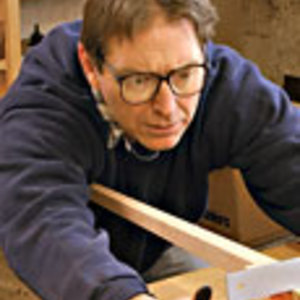
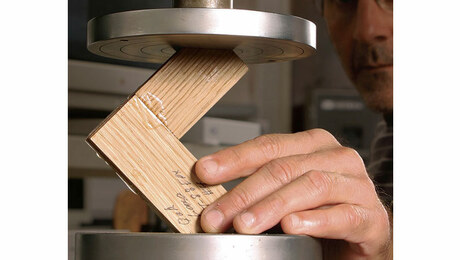

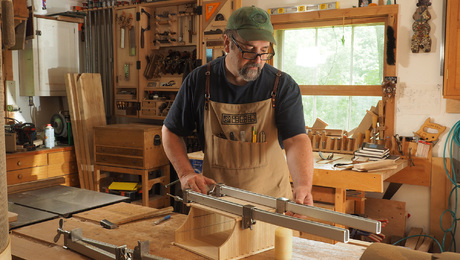




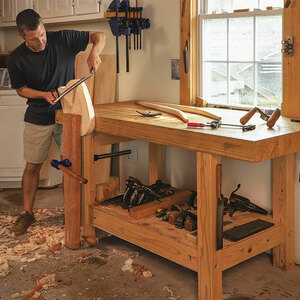
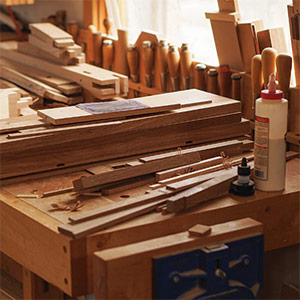
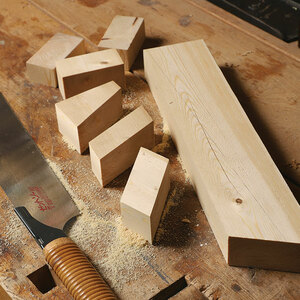











Comments
This article points out one of the basic problems of today's society.
Kids are not allowed to fail.
Everyone gets a passing grade.
If you make a wrong decision in life, someone else will pay your way.
Hopefully we can learn by this societal failure and proceed to successfully (with no doubt future mistakes) continue our building; whether it be a piece of furniture or our country.
Thank you Gary for this lesson.
I've been around for a lot of decades now, and this is easily the most cogent exposition on the value of failure I've ever read. Great stuff! These few paragraphs should be required reading for every young person early in life's journey.
Right on Gary.
I know nothing about Mr. Rogowski's wood smithing; but, he's an excellent word smith! I've forwarded this article to my daughter-in-law, stepdaughter and a good friend, teachers all. I couldn't agree more with the previous comments.
Very timely, Mr Rogowski, as I am working through my own staining issues. Rest assured I am certainly learning what NOT to do. My frustration will hopefully lead to knowledge to be logged into my small memory bank.
Thanks for your excellent insight.
OH how true. The larger the mistake the longer the lesson is remebered. I cannot tell you how many times I have had to walk away in frustration and even guilt. Only to come back later and figure out the mistake and how to make it work. Everyone makes mistakes, learning how to work with them is the learning process; learning not to make them again is the experience process.
Too true, Gary. I'm reminded of the story of Thomas Edison, who would hole himself up behind a locked lab door for days. After Edison emerged from one particularly long seclusion, a frustrated assistant confronted him with words to the effect of: "Mr. Edison, you've been inaccessible for several days and it looks like you've accomplished nothing!"
Edison replied, "On the contrary, I've documented experiments that prove in detail 100 specific methods we should not use to solve the problem."
Any job worth doing is worth doing poorly. I know that sounds contradictory; that's how I was thaught the value of making things. Im not interested in making things I already know how to make. Exploring new forms and/or techniques means that often the results will be less than ideal, but that's how we learn and improve.
"It is this failure that teaches us far more than our triumphs. For if we embrace these minor bumps in the road or those major sinkholes in our journey towards completion, if we back up, stare them square in the face and understand them, then we can move forward with, if not giddy aplomb, then at least crossed finger confidence that, this time!, we will succeed."
Right On! Best I've ever seen this said.
I'm proud that I learn from mistakes--particularly if they were made by someone else. What burns me is when I repeat a mistake that I learned from 40 year ago. Now that is frustrating. Another frustrating thing is that some of the tools that I found impossible -- a specific dovetail jig and specific belt sander comes to mind -- worked great for the guy I gave them to. I never got satisfactory results from that jig, although it wasn't for lack of trying. I kept notes about each trial and gave the notes with the jig. Later, I visited with my friend and saw all sorts of dovetailed boxes. While I admired his handiwork, he commented how much he appreciated the jig and how great it was. Surprised, I asked, "Were my notes any help?" "I suppose," He said, "I read them and then went out and bought the best bit I could find before I tried to do anything with the jig. I never had any problems." It never dawned on me that the bit--or the router for that matter--might have been the problem. That lesson reminded me to look at the big picture and to avoid unnecessary compromises.
Gary, aka the Zen Rogomeister, is a great soul. When I see one of his pieces, I always stop whatever I'm doing, shut down machines, and lock the doors until I've read and appreciated what he has to say and teach. If I lived anywhere near his NWS, I'd be there in a heartbeat. He is a man talking to his fellow men and women of the wood. I've adopted many of his time-tested stratagems, such as warming up with little choppin' and cuttin' exercises before launching into that walnut and tiger maple lifetime achievement.
There is no success like failure, and I am so glad he wrote and lives this. Thank you, mwalimu.
Gary is right: if you want to become a better woodworker, learn from your mistakes. Though you can also learn from your successes, even if they do not happen as often. The common core of leanrning from successes and failures is to understand why your method, technique, etc. worked or didn't work and to provide guidance for future work. I write detailed plans for every project, plans which change as the project develops. The last section of every plan is entitled "Lessons Learned." Almost all of these lessons flow from errors in planning or execution of work. Written in the form of a bulleted lesson, with an example, they remind me what to do on the next project, which will not be error-free but hopefully the errors will not be the same. And if they are, it's time once again to ask: Why? What can I do about this?
Failure is the road to wisdom. You could not have put it Gary. Without our failures our world of progress would come to a standstill. This is true in every aspect of life. The beauty about it is that we never stop learning. No matter how much knowledge we`ve already aquired. Great post Gary.
I got tired trying to find an unused screen name! I am 70 years old and began trying to learn and develop woodworking skills when I retired at 65. I am known in my family as a folk art woodworker because my work has all the requisite screw ups, errors, mistakes, miss-measurements, etc., etc. and will never be mistaken for a well crafted piece that might have been made by a manufacturer or a real wood worker. That aside, I enjoy what I do and we find great humor in what I do.
Thus, I am very familiar with the concept in your article about failure being a great learning tool. However, that is not what I wish to comment about.
As I read your article, I was gripped (and got goose bumps) by your use of the English language. You are a word smith who has to take second place to no one! With words you paint a beautiful canvas that grips, awes, educates and entertains!
You should be proud. Thank you.
Log in or create an account to post a comment.
Sign up Log in